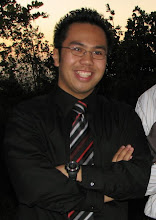 Above: Jason Alexander as 2nd most popular motivational speaker in the USA, from the short-lived ABC series Bob Patterson in 2001.
Above: Jason Alexander as 2nd most popular motivational speaker in the USA, from the short-lived ABC series Bob Patterson in 2001."MOST OF US ARE
FAR FROM OUR POTENTIAL."
Dr. Angela Duckworth at the University of Pennsylvania
FAR FROM OUR POTENTIAL."
Dr. Angela Duckworth at the University of Pennsylvania
Folks, its been a busy week at the new clinic I'm at. So here's a quick shortie, and you'll get a full update on what's going on very soon.
The sacrifices that we make to go to medical school are large (both for U.S. and Caribbean students). For many of us, the sacrifices include a long time in school and being piled in debt that is miles high. For others, the sacrifices are greater, either from the demands of moving from place to place, and even trying to support a family during the demanding time schedule of school. Some of us have been more successful at balancing the plates than others.
One thing I've always wondered in such a demanding & competitive environment is whether or not there really is an advantage of background when going through medical school? Is the person who comes from a lineage of doctors going to be more successful from the student who comes from a farm-based community in Iowa who wanted to become a doctor to exit the world of agriculture? I know of many successful doctors who have come from families where mom, dad, or more relatives came from the medical field.
What truly determines our success, the drive or where we come from? One of my Facebook friends, Frank, posted a link to a New York Times article saying that motivation actually outweighs nature and nurture (background) in the long run. It's been a debate that has been going on for centuries. Some scientists are saying that genetics are not related to how well someone does in their own field. Others say that challenging environments make people better at their field by generating motivation. And finally, we still have people out there saying that families of people good in a field will foster future generations also good in that field.
After going through my Leadership Certificate training at the Illinois Leadership Center at the University of Illinois, I still believe it is truly up to the person to make themselves the "cream of the crop." And it is for this I want to somehow become involved in teaching, because I have always wanted to empower others to reach their potential; many people at the U of I have motivated me to make it this far, even as I'm not from a family of doctors. From my experiences, I think its a good combination of the right environment and self-motivation that can make someone the best that they can be. Talent isn't necessarily inherited.
I encourage you to read the cited article below to learn more.
Source: The New York Times
The sacrifices that we make to go to medical school are large (both for U.S. and Caribbean students). For many of us, the sacrifices include a long time in school and being piled in debt that is miles high. For others, the sacrifices are greater, either from the demands of moving from place to place, and even trying to support a family during the demanding time schedule of school. Some of us have been more successful at balancing the plates than others.
One thing I've always wondered in such a demanding & competitive environment is whether or not there really is an advantage of background when going through medical school? Is the person who comes from a lineage of doctors going to be more successful from the student who comes from a farm-based community in Iowa who wanted to become a doctor to exit the world of agriculture? I know of many successful doctors who have come from families where mom, dad, or more relatives came from the medical field.
What truly determines our success, the drive or where we come from? One of my Facebook friends, Frank, posted a link to a New York Times article saying that motivation actually outweighs nature and nurture (background) in the long run. It's been a debate that has been going on for centuries. Some scientists are saying that genetics are not related to how well someone does in their own field. Others say that challenging environments make people better at their field by generating motivation. And finally, we still have people out there saying that families of people good in a field will foster future generations also good in that field.
After going through my Leadership Certificate training at the Illinois Leadership Center at the University of Illinois, I still believe it is truly up to the person to make themselves the "cream of the crop." And it is for this I want to somehow become involved in teaching, because I have always wanted to empower others to reach their potential; many people at the U of I have motivated me to make it this far, even as I'm not from a family of doctors. From my experiences, I think its a good combination of the right environment and self-motivation that can make someone the best that they can be. Talent isn't necessarily inherited.
I encourage you to read the cited article below to learn more.
Source: The New York Times







